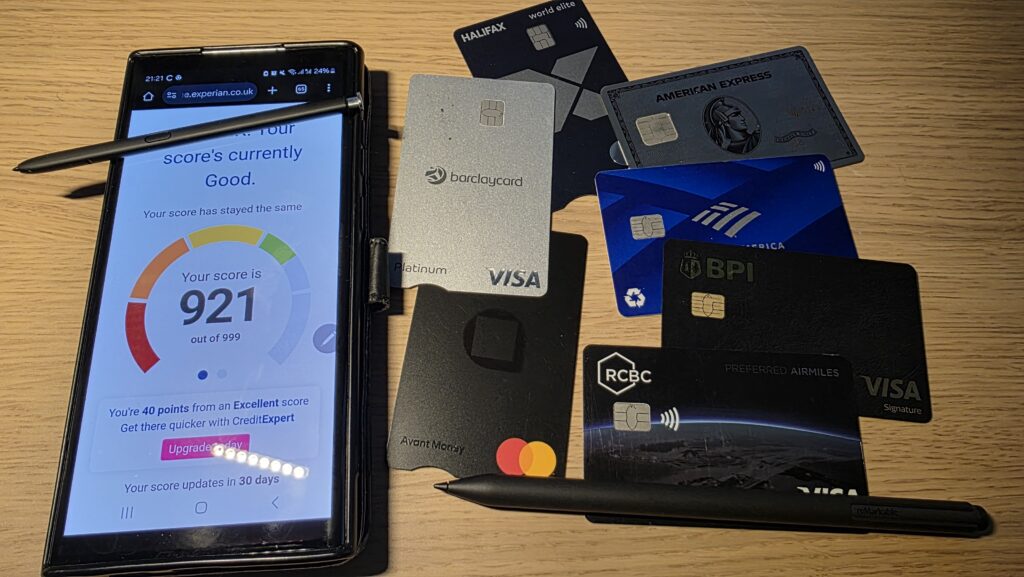Life abroad opens up numerous opportunities for Filipino workers, but it also comes with financial responsibilities that might be different from what we’re used to back home. One of the most important aspects of financial life overseas is understanding and managing your credit score. Whether you’re in the United States, Canada, Australia, or any other country, your credit score can significantly impact your life abroad. Let’s dive into everything you need to know about credit scores in a way that’s easy to understand and relevant to our kababayans working overseas.
What Is a Credit Score and Why Should Filipinos Care?
The Basics of Credit Scoring
Think of a credit score as your financial report card that shows how responsible you are with money. Just like how our grades in school determined our academic standing, credit scores tell banks and other financial institutions how trustworthy we are when it comes to managing debt. Most countries use different scoring systems, but they all serve the same purpose: to measure how likely you are to repay your debts on time. For many Filipinos who grew up in a cash-based society, understanding credit scores can be challenging at first, but it’s crucial for building a stable financial future abroad.
Why Credit Scores Matter More Than You Think
Your credit score isn’t just about borrowing money – it affects many aspects of your life abroad. From renting an apartment to getting a mobile phone plan, and even job opportunities in some cases, your credit score can open or close doors. Many Filipino workers abroad are surprised to learn that their credit score can influence their ability to send money home efficiently or invest in properties back in the Philippines. Understanding how credit scores work in your host country is essential for achieving your financial goals and supporting your family back home.
Credit Score Ranges and What They Mean
Different countries use various credit scoring systems. Here’s a breakdown of the most common ones that Filipino workers abroad might encounter:
| Country | Credit Score Range | Rating Categories | Main Credit Bureau |
|---|---|---|---|
| USA | 300-850 | Excellent (750+), Good (700-749), Fair (650-699), Poor (below 650) | FICO |
| Canada | 300-900 | Excellent (741-900), Good (713-740), Fair (660-712), Poor (below 660) | Equifax/TransUnion |
| Australia | 0-1000 | Excellent (800-1000), Good (700-799), Fair (500-699), Poor (below 500) | Equifax |
| UK | 0-999 | Excellent (961-999), Good (881-960), Fair (721-880), Poor (below 720) | Experian |
Factors That Affect Your Credit Score
Payment History (35%)
Your payment history is the most significant factor affecting your credit score. It shows whether you pay your bills on time. For Filipinos abroad who are used to informal lending systems like “utang” or “5-6,” it’s crucial to understand that in many countries, even a single late payment can significantly impact your credit score. Making timely payments on your credit cards, loans, and other bills is essential for maintaining a good credit score.
Credit Utilization (30%)
Credit utilization refers to how much of your available credit you’re using. For example, if you have a credit card with a $10,000 limit and you’ve spent $3,000, your credit utilization is 30%. Financial experts recommend keeping your credit utilization below 30% to maintain a good credit score. This concept might be new to many Filipinos who are more familiar with cash transactions, but it’s crucial for building a strong credit profile.
Length of Credit History (15%)
The longer you’ve had credit accounts, the better it is for your score. This can be challenging for newly arrived Filipino workers who are just starting to build their credit history. However, there are ways to establish credit history quickly, which we’ll discuss later in this article.
Credit Mix (10%)
Having different types of credit accounts (credit cards, personal loans, car loans) can positively impact your score. However, it’s important to manage them responsibly and not take on more debt than you can handle.
New Credit Applications (10%)
Every time you apply for new credit, it can temporarily lower your score. This is why it’s important to be strategic about when and how often you apply for new credit.
Building Credit from Scratch: Tips for Filipino Newcomers
Start with Secured Credit Cards
For many Filipino workers who are new to their host country, secured credit cards are an excellent way to start building credit. These cards require a security deposit that typically becomes your credit limit. While this concept might seem strange compared to credit cards in the Philippines, it’s a proven way to establish credit history safely.
Become an Authorized User
If you have a family member or trusted friend with good credit in your host country, asking them to add you as an authorized user on their credit card can help you build credit history. This practice, while common in many countries, should be approached carefully to protect both parties’ financial interests.
Common Credit Score Myths Among Filipino Workers Abroad
Let’s debunk some common misconceptions:
| Myth | Reality |
|---|---|
| “Higher salary means better credit score” | Your income doesn’t directly affect your credit score, though it affects your ability to pay bills |
| “Checking your credit score lowers it” | Checking your own score (soft inquiry) doesn’t affect it; only credit applications (hard inquiries) do |
| “Carrying a credit card balance improves your score” | This is false and costly – paying in full each month is best for your score and wallet |
| “Closing old credit cards helps your score” | Actually, keeping old accounts open can help your credit history length |
Maintaining a Good Credit Score: Practical Tips for OFWs
Create a Foolproof Payment System
Set up automatic payments for your bills to ensure you never miss a due date. Many Filipino workers abroad juggle multiple financial responsibilities, including sending money home, so having a system in place is crucial. Consider setting payment due dates right after your payday to ensure funds are always available.
Monitor Your Credit Report Regularly
Most countries offer free annual credit reports from major credit bureaus. Take advantage of these free reports to check for errors and monitor your progress. Being proactive about your credit report can help you identify and address any issues before they become serious problems.
Be Strategic with Credit Applications
Before applying for new credit, research your options and only apply for products you’re likely to qualify for. Multiple rejected applications can hurt your credit score and make it harder to get approved in the future.
How Your Credit Score Affects Your Financial Goals
Buying a Home Abroad
A good credit score can save you thousands of dollars in interest payments when buying a home. For Filipino workers planning to settle abroad permanently, this is particularly important. Here’s an example of how your credit score affects mortgage rates:
| Credit Score Range | Average Mortgage Rate | Monthly Payment on $300,000 Loan (30 years) |
|---|---|---|
| 760-850 | 3.2% | $1,297 |
| 700-759 | 3.4% | $1,330 |
| 680-699 | 3.6% | $1,364 |
| 660-679 | 3.8% | $1,398 |
| 640-659 | 4.0% | $1,432 |
Starting a Business
Many Filipino entrepreneurs abroad find that their credit score affects their ability to secure business loans or rental spaces for their ventures. A good credit score can make it easier to achieve your entrepreneurial dreams in your host country.
Recovering from Credit Score Damage
Understanding the Recovery Timeline
Different types of negative items affect your credit score for different lengths of time:
| Negative Item | Time on Credit Report |
|---|---|
| Late Payment | 7 years |
| Bankruptcy | 7-10 years |
| Collection Accounts | 7 years |
| Hard Inquiries | 2 years |
Steps to Rebuild Your Credit
If your credit score has been damaged, focus on these key actions:
- Make all payments on time, every time
- Reduce credit card balances
- Don’t close old accounts
- Consider a secured credit card if necessary
- Dispute any errors on your credit report
Special Considerations for Different Countries
Different countries have unique aspects to their credit systems that Filipino workers should be aware of:
United States
- Credit scores are widely used, even by employers
- Multiple credit scoring models exist (FICO, VantageScore)
- Credit reports from three major bureaus: Experian, TransUnion, and Equifax
Canada
- Credit system similar to the US but with different score ranges
- Two major credit bureaus: Equifax and TransUnion
- Credit scores less commonly used by employers
Australia
- Comprehensive Credit Reporting (CCR) system
- Positive and negative information included
- Different scoring system from North America
Protecting Your Credit Score from Identity Theft
As Filipino workers abroad, protecting your credit score from fraud is crucial. Take these precautions:
- Regularly monitor your credit report
- Use strong passwords for financial accounts
- Be careful with personal information
- Report suspicious activity immediately
- Consider credit monitoring services
Sources and Related Links:
- FICO Score ranges and impacts: myfico.com
- Federal Trade Commission – Credit Reports: consumer.ftc.gov
- Consumer Financial Protection Bureau: consumerfinance.gov
- Equifax Canada Credit Score Information: equifax.ca
- Australian Credit Reporting: moneysmart.gov.au
Disclaimer: This blog post is for informational purposes only and should not be considered financial advice. Credit scoring systems and regulations vary by country and may change over time. While we strive to provide accurate and up-to-date information, readers should verify current information with relevant financial institutions or credit bureaus in their host countries. Please report any inaccuracies to our editorial team for prompt correction. The examples and rates provided are for illustration purposes only and may not reflect current market conditions.




